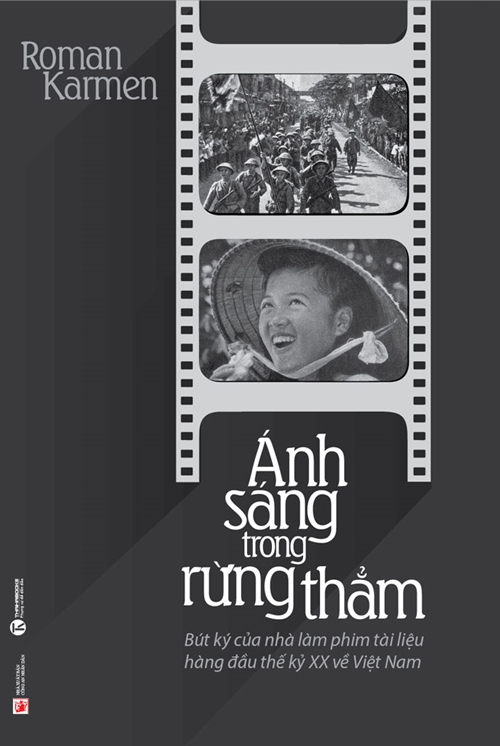In September 1954, I completed a business trip to Thai Nguyen and Tuyen Quang. When I returned to the Department of Military Weapons and Ammunition, I received a notice that Deputy Director of the department Nguyen Ngoc Xuan wanted to assign a new task to me.
    |
 |
|
Director Roman Karmen (third from left) making a documentary film in Vietnam in 1954 (A filed photo) |
Seeing me, Xuan said, “the Soviet Union is helping us make a movie named ‘Vietnam on the victorious path.’ In the outline and script, there are some scenes about the transport, scientific research, manufacturing of weapons and other activities of officers, workers, and gunsmiths in the deep forest. The department has sent personnel to give support to the Soviet film crew. This time, you take on the mission and have an honor to meet the famous Soviet director and cinematographer Roman Karmen.”
Receiving the mission, I made quick preparations and set out the next morning. The first person I met in the film crew was Nguyen Dinh Thi, a representative of the Vietnam Association of Literature and Arts and some young guys from the country’s film industry who had just returned home from overseas study.
The General Department of Supply (now the General Department of Logistics) gave director Roman Karmen a Jeep, a trophy of the military. Some suggested giving him a healthy horse to ride in mountainous Viet Bac; however, the director refused and asked to walk with the film crew.
Karmen walked and told stories about filming in battlefields. Watching him, a muscular man, walking on the zigzag roads with dense trees, sometimes wading streams, climbing passes with the body drenched in sweat, we were really moved. Whenever he held the camera, he no longer knew the time. Thus, we had to appoint a guard with a watch to remind him of the time, breaks, lunch, and dinner.
Roman Karmen did love the scene of transporting machinery, supplies, and raw materials into the deep forest. He filmed in detail various types of traditional vehicles, such as buffalo carts, wheelbarrows, carts and scenes of ethnic minority people carrying machines down the mountain to the workshop. He asked us to prepare some bouquets of wild flowers. He said that “ We should culturalize the resistance war.”
    |
 |
|
The cover of the book “Light in the Deep Forest” by Roman Karmen, published by the People's Public Security Publishing House in 2015 |
Time in Viet Bac war zone flew quickly. Roman Karmen also wanted to spend more time having a close-up of Mr. Tran Dai Nghia at work. He explained that “Nghia is the ‘head of the workshop,’ we must film him more!”
The filming of the “Vietnam on the victorious path” documentary film continued, but the scenes on the military gunsmiths finished. Our department held a farewell party for Roman Karmen. During the party, he introduced Nguyen Dinh Thi to sing the songs “Kill the Fascists” and “Hanoians” and he sung some Soviet songs of the Great Patriotic War. His voice was high, resonant, and very attractive. After the party, we said goodbye to Roman Karmen in Giang Tien (now Giang Tien townlet, Phu Luong district, Thai Nguyen province).
When I was working in Hanoi, I received a book titled “Light in the Deep Forest” by Roman Karmen as a gift. That was the book he wrote about Vietnam and its people during the resistance war, beloved Uncle Ho, and our glorious Party.
The memories of the day assisting him in filming in the deep forests of Vietnam will never fade in my mind.
By Tran Tieu
Translated by Mai Huong